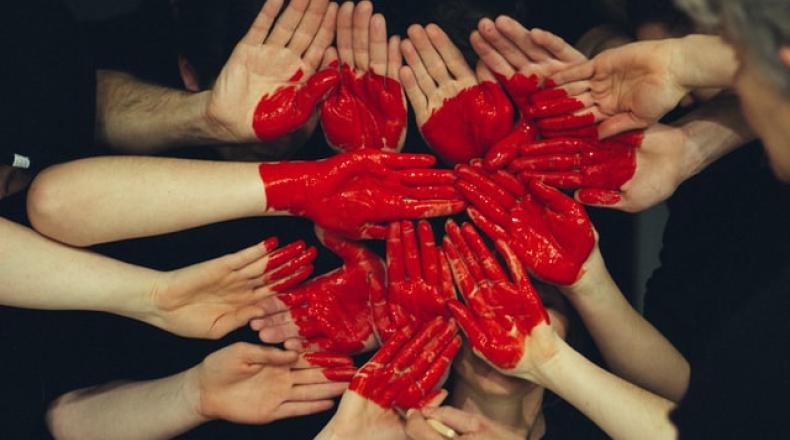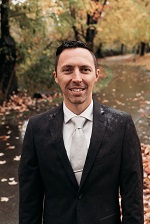AP Perspectives: Creating Transformational Change for Indigenous Fundraisers, Communities

Canada has a long and troubled history in its relations with Indigenous peoples.
From before Confederation, to the creation of the Indian Act, to the more recent confirmation of 215 childrens’ graves at former Kamloops Residential School, Canada’s treatment of Indigenous people is widely seen as motivated by the elimination of Indigenous culture in favor of assimilation into Euro-Canadian society. Generations of Indigenous Canadians have experienced some form of trauma, human rights violations or social and cultural disruption.
Today, we find Indigenous Canadians overrepresented in the criminal justice system, while marginalized socially and economically. Indigenous people experience higher unemployment, lower education, less adequate housing, and poorer health. These conditions lead to Canada’s highest levels of poverty. A shocking 1 in 4 Indigenous people live in poverty, which robs opportunities and life potential, and further increases the likelihood of incarceration. Despite accounting for only 5% of the Canadian population, Indigenous people now account for over 30% of those behind bars—and that number is rising.
But the story of Indigenous people in Canada is not beyond hope.
As an eighth-generation Chippewa Cree Métis, it is my experience that themes of agency and empowerment played a key role in our past yet offer a brighter path for our future. The reasons behind dysfunction in Indigenous communities are complex, and I am no expert, however the way forward is not mysterious to any of us. By equipping and empowering Indigenous leaders today, we invest in the people most qualified and motivated to make positive, lasting change in their communities.
The Association of Fundraising Professionals (AFP) is ideally positioned to catalyze grassroots, transformational change in Indigenous communities. Our guiding vision is to stimulate a world of generosity and positive social good through fundraising best practices. As professional fundraisers we know better than anyone the power of mobilizing people and resources for a cause. We are experts at building organic movements and harnessing philanthropy to make a difference in our communities. A contextualized, Indigenous-led approach to renewal from within can work in Indigenous communities too.
Understanding AFP’s potential and the critical need within many communities, it is our responsibility and privilege to cultivate more trained and motivated Indigenous fundraisers in Canada and the United States. Who better to sensitively advocate for the diverse needs of Indigenous communities than Indigenous fundraisers themselves?
However, the numbers on Indigenous participation in professional fundraising show marked room for improvement. The 2020 AFP Compensation and Benefits Study included four Indigenous fundraising professionals as survey participants from Canada (1% of total, rounded) and six from the USA (0% of total, rounded). I suspect the three other respondents from Canada would agree with me that more can be done to foster Indigenous voices and representation in our sector.
How can we move forward toward a more inclusive AFP community?
I respectfully ask the AFP community to prioritize the development of a leadership pipeline for Indigenous fundraisers. Existing strategies of AFP scholarships and cohorts have proven to be effective; I would propose combining these approaches, along with other innovative strategies, to promote a leadership cohort for emerging Indigenous fundraisers. It’s exciting to think of what could be accomplished through emerging Indigenous leaders, empowered by fundraising best practices.
My own story in professional fundraising began with a scholarship from the AFP Foundation for Philanthropy – Canada to attend AFP Congress in Toronto. I’m not sure I would have remained in the sector, and eventually achieved my CFRE, without that early investment and support. I remain grateful to the AFP community for this opportunity and would very much like to see more stories like my own.
There is a traditional Métis story called “The Giving Tree,” which captures the Métis spirit of caring practically for each other in community. Inside the large hollow of an old Manitoba maple, travelers in need could find provisions and other useful items for their journey. In return, travelers would always deposit something from their excess for the next family. Visiting the Giving Tree was a time of rest, a time to eat and tell stories, and a reminder of who one was within a thriving community.
I pass this story from our people on to you, in hopes that it inspires you and brings a smile to your face.
Together, let’s create an AFP community that includes and empowers our Indigenous brothers and sisters. Let us model generosity through a leadership pipeline for Indigenous fundraisers, our own “Giving Tree,” to support one another in our journey toward healing, reconciliation and social good. Thank you for taking the time to read and consider.
Mína ka wapamitin
(I will see you again)
Quentin Fincaryk, MA, CFRE
Citizen, Metis Nation of British Columbia
Director of Development, The Wellspring Foundation for Education


 Quentin Fincaryk currently serves as the director of development at The Wellspring Foundation for Education, helping develop quality education in some of the most remote communities of Rwanda and Uganda. He completed his Master of Arts in Asian Studies at Sejong University, South Korea in 2012 and completed his CFRE certification in 2017. Quentin serves on the board of the AFP Foundation for Philanthropy - Canada and as Vice-Chair at Clearbrook Waterworks District. He lives in Abbotsford, British Columbia with his wife, three children, and his seldom used motorcycle.
Quentin Fincaryk currently serves as the director of development at The Wellspring Foundation for Education, helping develop quality education in some of the most remote communities of Rwanda and Uganda. He completed his Master of Arts in Asian Studies at Sejong University, South Korea in 2012 and completed his CFRE certification in 2017. Quentin serves on the board of the AFP Foundation for Philanthropy - Canada and as Vice-Chair at Clearbrook Waterworks District. He lives in Abbotsford, British Columbia with his wife, three children, and his seldom used motorcycle.

